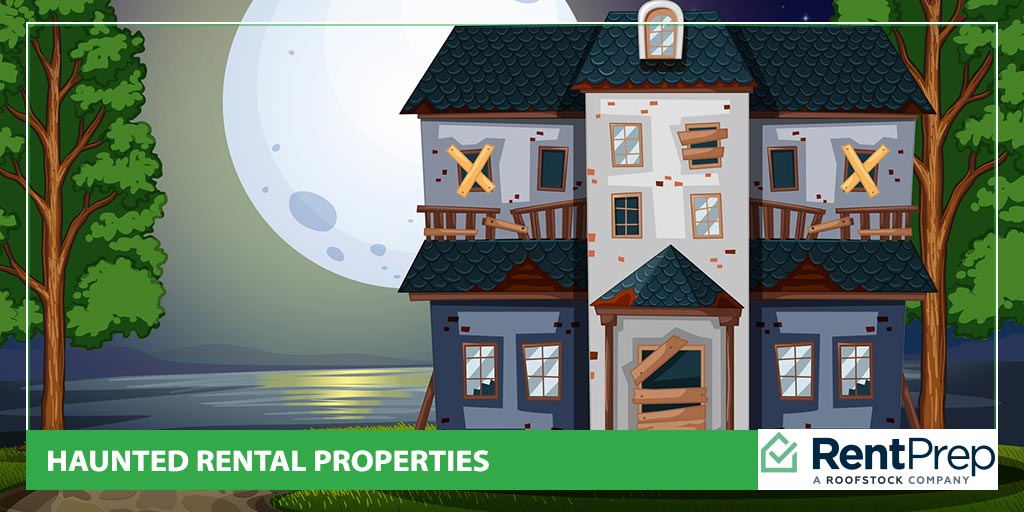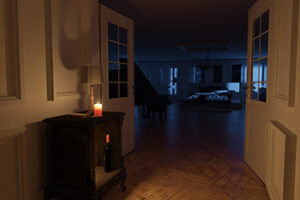
Haunted houses are fun when you seek them out around Halloween, but what about when the unexpected happens in your own home?
Depending on where you stand on the spectrum of belief in the paranormal, it may really matter to you whether you choose a living situation where things go bump in the night.
While there is no hard and fast regulation under which a potential haunting can be identified or determined, it may actually fall under a disclosure clause when a house is up for sale or rent.
Can apartments be haunted?

While each state differs, you may be surprised at how often the subject of haunting disclosures comes up in real estate training conferences, and even in legal rulings.
Because sellers and landlords are required by law to tell potential tenants all the material facts about a property, or the information crucial to making a decision, they can face legal action if they fail to reveal a haunting or “consistent and unexplainable activity.”
In the 1990 New York case, Stambovsky v. Ackley, a tenant went to court to be released from a contract he made on a house before he learned of its haunted history. He ultimately won, mainly because the seller had publicized the history of the house and the strange events encountered there and it was decided that she owed the same duty to the buyer. While the court’s decision did not verify the existence of a spiritual presence, publicizing it interpreted it as a material fact.
Similar cases have cropped up throughout the country and while the rulings tend to differ based on the circumstances, the best practice among those in the real estate community is that disclosure is usually the best bet. It’s not a question of can apartment be haunted or not, it’s a question of if the owner profited from advertising at sometime the apartment as haunted.
It also helps that there are many potential renters that are very interested in the idea of living in a “haunted” house and advertising a home as such is likely to bring in an entirely new type of tenant. Vacation and short-term rentals with a “ghost” are also in high demand.
Renter Ghost: What to do as a tenant?
So how do you protect yourself if you are not interested in sharing house space with a renter ghost, or even just the reputation of one? Fortunately, you don’t have to wait until you are in residence to find out.
Trust Your Gut
Your senses may be telling you more than you think they are. Whether it is the feel of the neighborhood or just the general sense of comfort or discomfort you get from an initial walkthrough, you may need to investigate further or just move on.
Research the Home’s History

A little online investigation may save you a lot of time and stress, and in this media-driven age, it is easier than ever to find out the history of a potential home or building. Public records are usually revealing, or if you want to dig a little deeper, you can access websites like www.diedinhouse.com to get a record of any deaths in the home, suspicious or otherwise.
Talk to the Neighbors
This is always a good idea in any case, since you are most likely to get the most accurate review of the neighborhood and any rumors surrounding homes in the area. Even if you are quite certain that there is no such thing as ghosts, homes with a reputation may be a magnet for local citizens that are less skeptical and you may find the property targeted or regularly trespassed on.
Check the Paperwork
In your state, your landlord may be required to submit a self-disclosure form to reveal known issues with the house, which includes paranormal activity. In some cases, homes known to be haunted may be classified as “stigmatized homes” which can impact the sale or rental desirability.
Be Logical
Issues in houses are sometimes interpreted as hauntings, especially when the plumbing or insulation is old and the sounds and feelings associated with these things are unfamiliar to tenants used to more modern housing. If you believe in paranormal activity, you are not alone, but beware of letting your imagination run away with you.
It is also wise to keep in mind that the idea of ghosts and haunted houses are very subjective to personal interpretation and are very hard to actually qualify and prove. Some states embrace a “buyer beware” attitude in such instances where the evidence is so subjective. As a tenant or prospective tenant, a haunted rental house may change your opinion about the rental property and whether or not you want to put up with the associated stigma, for better or worse. At least, tenants can be as informed as possible before making such an important decision as to where they want to live.

